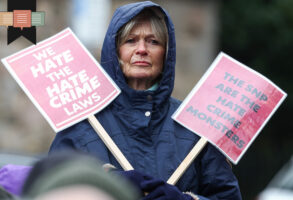Published October 8, 2014
The Catholic Difference
It’s sometimes hard to tell, this time of year, but there’s more going on at Notre Dame than football. Spirited debate continues about the university’s Catholic identity and what that means for everything from curriculum and faculty hiring to the campus master plan. Those involved in that debate can now take inspiration from an impressive new project mounted by the university’s library, which introduces English-speakers to some modern Russian heroes of faithful discipleship.
In 2000, the Russian Catholic leadership published a remarkable study, Book of Remembrance: A Martyrology of the Catholic Church in the USSR, which included brief biographies of more than 1,800 Catholics—priests, religious, and laity—persecuted under Lenin and Stalin. The biographies were subsequently translated by Dr. Geraldine Kelley, and thanks to the work of a team led by Natasha Lyandres, Russian and East European Curator and Head of Rare Books and Special Collections at Notre Dame’s Hesburgh Library, they’re now available online. The university’s digital resources made it possible to enhance the original Russian work, through a search engine that allows readers to work back and forth through the biographies, seeing the connections among these twentieth-century heroes of the faith from both the Latin and Eastern rites.
Sixteen of those memorialized in the Book of Remembrance are now part of a joint beatification cause. Their names will be familiar to only the most knowledgeable specialists; their stories ought to inspire Catholics across America.
Mother Catherine Abrikosova, OPL, founded and led a community of Third Order Dominican sisters, for which she was arrested in 1923, along with the rest of her community, and sentenced to ten years imprisonment. Released after breast cancer surgery in 1932, she was re-arrested and sentenced to eight years in the Gulag camps. She died in 1936.
Another member of that Third Order Dominican community, Camilla Nikolaevna Kruczelnicka, was sentenced to ten years in 1933 and sent to what Solzhenitsyn called the “Mother of the Gulag,” the Solovki camp, located on an island in the far northern White Sea. The Book of Remembrance picks up her story from there: “In the camp she married a man whom she hoped to convert, but he turned out to be an informant for the camp administrators. In 1937, Kruczelnicka was transferred to a stricter regime area within the camp. On the 27th of October 1937, she was shot at Sandomokh, an isolated area in a swamp in Karelia, near Medvezhegorsk . . . while she was in the camp [she attempted] to maintain links to the Catholic priests who were there, keeping strong in her faith and trying to bear witness to it.”
Then there is Fr. Franciszek Budrys, whose pastoral work took him to parishes throughout Russia. The climax of his story is briefly told: “In 1937 he was arrested in Ufa together with members of the parish council on charges of being the ‘president of an espionage network of the counter-revolutionary insurgent Polish Military Organization (POV).’ December 1937—sentenced to death. December 16, 1937—shot, in Ufa prison, along with another 180 Catholics.”
The Book of Remembrance is replete with such stories, although some end with the simple notation, “Fate Unknown”—a reminder that Russia is a vast cemetery of unmarked Christian graves: Catholic, Orthodox and Protestant martyrs, united in their witness-unto-death—which, as St. John Paul II taught, is the most powerful embodiment of ecumenism. Those looking for challenging spiritual reading will find it in the Book of Remembrance and at the website dedicated to the cause of the Catholic New Martyrs of Russia, in story after story of remarkable fidelity to Christ under extraordinary circumstances.
Their witness was important in its time. Their intercession before the Throne of Grace is important today, when an aggressive Russia under Vladimir Putin is airbrushing history, lying about Catholic activity in Ukraine, threatening Russia’s neighbors, and doing so in the name of a fictive “Russian space” claiming the warrant of an ancient Christian civilization. The true exemplars of that civilization, however, are not ex-KGB agents, but the martyrs in the Book of Remembrance.
George Weigel is Distinguished Senior Fellow of Washington’s Ethics and Public Policy Center.








